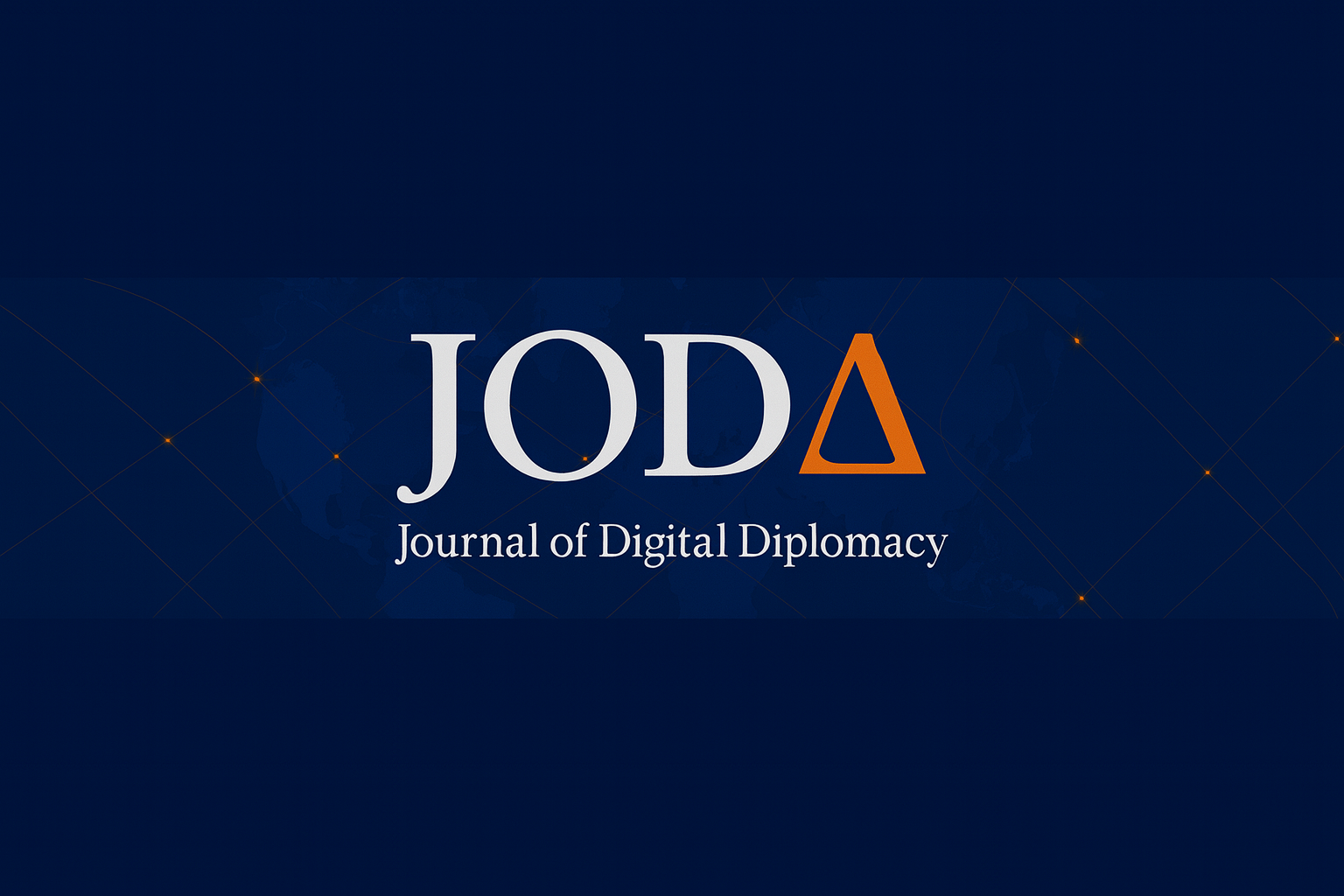About the Journal
The scope of the journal includes, but is not limited to, the following thematic areas:
· AI Diplomacy: The role of artificial intelligence in shaping diplomatic processes, negotiations, and foreign policy decisions.
· Blockchain and Crypto Diplomacy: Diplomatic implications of blockchain technologies, cryptocurrencies, and decentralized governance systems.
· Cyber and Data Diplomacy: Diplomatic engagements concerning cybersecurity, digital sovereignty, and transnational data governance.
· Social Media Diplomacy: Statecraft and public diplomacy conducted via platforms such as Twitter, Facebook, Instagram, and others.
· Quantum and Semiconductor Diplomacy: The geopolitics of quantum computing, chip manufacturing, and technological dependencies.
· Space and Satellite Diplomacy: Cooperation and competition in outer space, including satellite technologies and governance regimes.
· ICT, Internet, and Online Diplomacy: Digital infrastructures, digital divide, virtual embassies, and internet governance.
· Metaverse and Virtual Diplomacy: Diplomatic presence, representation, and interaction within immersive virtual environments.
· Science and Tech Diplomacy: The intersection of scientific cooperation, innovation policies, and global strategic competition.
· Cable, Telegraph, and Telephone Diplomacy: Historical and contemporary roles of communication infrastructure in diplomacy.
· Real-Time and Tele-Diplomacy: Instantaneous diplomatic communication and crisis response in a digitally connected world.
Journal of Digital Diplomacy welcomes original research articles, case studies, theoretical contributions, policy briefs, and critical reviews that address these domains from political, legal, technical, economic, ethical, or societal perspectives.
JODΔ welcomes high-quality academic articles, research papers, policy analyses, and book reviews that explore the evolving dynamics of diplomacy shaped by digital tools, artificial intelligence, cyber governance, digital communication platforms, data-driven decision-making, and other emerging technologies. The journal also encourages submissions that investigate the geopolitical, ethical, and sociocultural implications of digital transformation in diplomatic practice.
The journal seeks to:
· Advance scholarly and policy-oriented dialogue on digital diplomacy,
· Promote international and interdisciplinary approaches to the field,
· Bridge traditional diplomatic studies with contemporary technological developments,
· Contribute to the global dissemination of knowledge through open access.
Peer Review Process
All submissions to Journal of Digital Diplomacy undergo an initial editorial screening. Manuscripts deemed suitable for publication are reviewed through a rigorous double-blind peer review process involving at least two anonymous expert reviewers.
Reviewers are expected to complete their evaluations within four weeks. If revisions are requested, authors are encouraged to submit a revised version within a similar timeframe. Final publication decisions rest with the Editorial Board and Editors-in-Chief.
Publication Frequency
JODΔ is published quarterly, with issues released in March, June, September, and December.
Article Processing Charges (APC)
Journal of Digital Diplomacy does not charge authors any article processing or submission fees. The journal is committed to equitable and free dissemination of knowledge for authors and readers alike.

